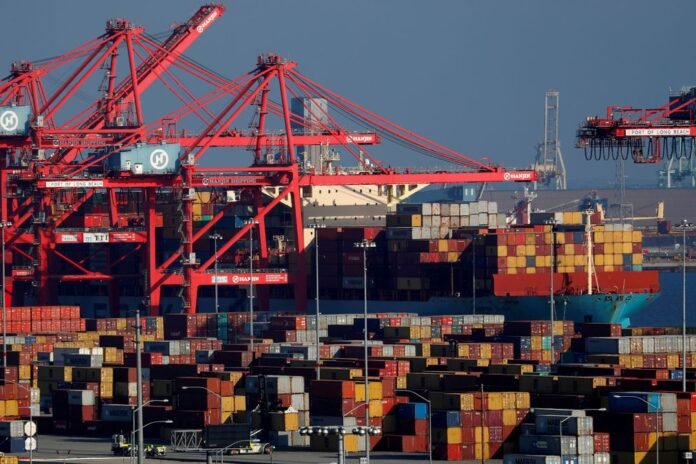The financial circus rolls into Washington this week for the IMF’s spring meetings, and the ringmasters are walking a precarious tightrope. Tariffs take centre stage, of course. But what can be done about them? And what does it mean for the global economy?
As the Trump administration tries to negotiate with its trade partners, finance ministers from all over the globe will gather in Washington, D.C., this week for the spring meetings of the International Monetary Fund and the World Bank.
However, the dimming global economic outlook will cast a shadow over any bilateral negotiations. No matter how many tariffs the U.S. imposes, the bleak global picture will affect US trading partners.
New economic predictions and polls will indicate the initial impact three weeks after Trump officially initiated a trade war with the whole world. Many countries will be indirectly hit if us tariffs substantially weaken the economic prospects of their trading partners.
Uncertainty about trade policy soars
For example, say you’re Japan, one of the nations the Trump administration has prioritised in its negotiations. Its two biggest export markets are China and the US, followed by South Korea, Hong Kong, Thailand, Vietnam and Mexico.
In 2023, Japan exported slightly more to those last five combined than to the US. Japanese exporters would, of course, prefer lower US tariffs.
But high tariffs on China, Vietnam, Mexico, and attendant dents in those economies could hurt Japan, too. All of this means that even countries optimistic about securing a trade deal with the US will be keeping an eye on the global outlook.
In other words, in a tightly knit global economy, even bilateral trade fights can have ripple effects. Expectations for global economic growth are souring since Trump’s April 2 “Liberation Day” announcement.
A Bank of America survey shows 82 per cent of investors expect the global economy to weaken. Goldman Sachs now expects year-over-year global GDP growth of just 1.4 per cent in the current quarter, less than half of the 3 per cent growth at the end of last year.
The IMF is set to slash its own growth forecasts when it publishes its World Economic Outlook later on Tuesday. IMF’s managing director Kristalina Georgieva said, “Our new growth projections will include notable markdowns but not recession.”
(With inputs from the agencies)


